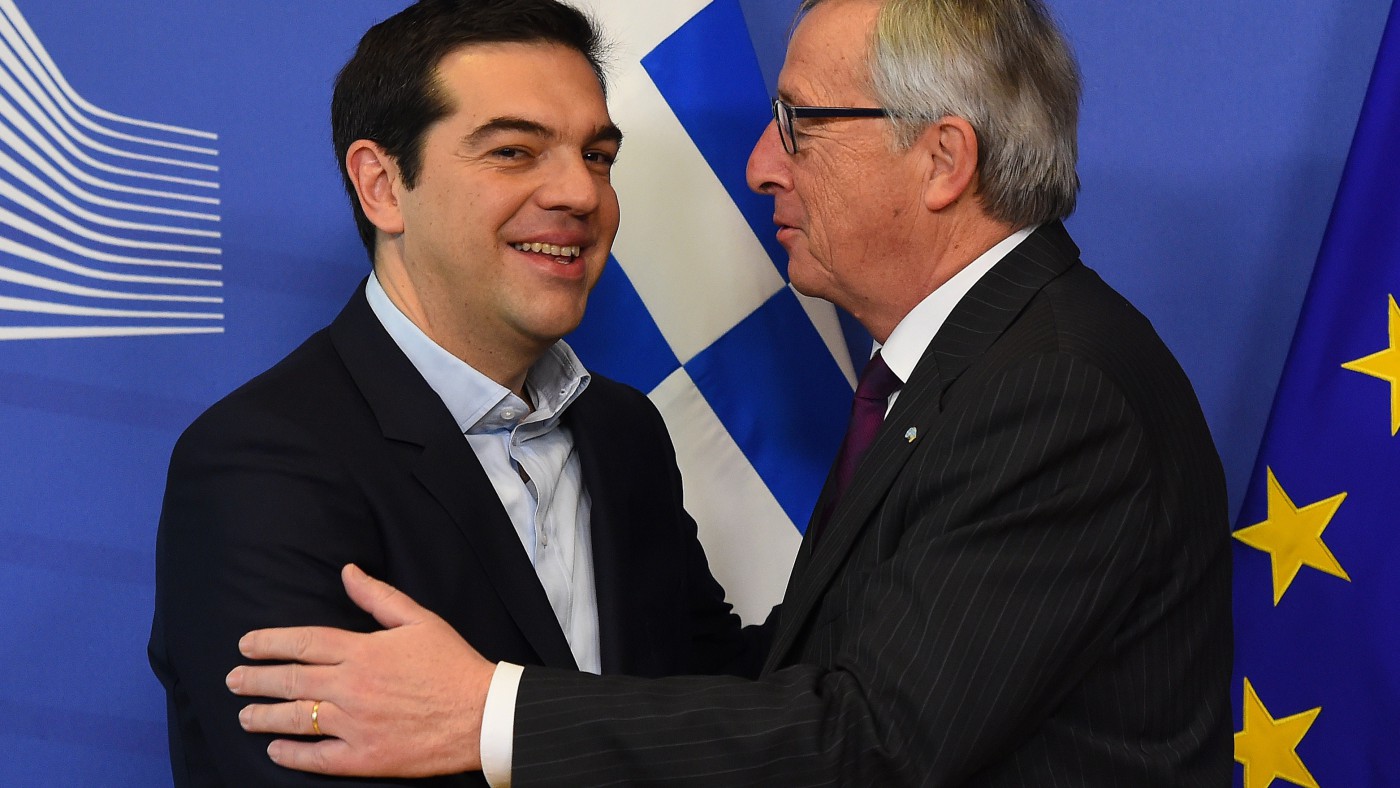“Elections change nothing,” said Wolfgang Schäuble, Germany’s tough-minded finance minister. He was talking about Greece, but he could have been talking about the entire EU racket. The Europhile elites have a guarded and contingent attitude towards democracy. It has its place, to be sure, but it must never be allowed to slow the process of political integration. As the President of the European Commission, Jean-Claude Juncker, put it in response to Syriza’s election victory, “There can be no democratic choice against the European treaties”.
He means it. In 2011, in order to keep the euro intact, the EU connived at the toppling of two elected prime ministers: Silvio Berlusconi in Rome and George Papandreou in Athens. Both men were replaced by Eurocrats who presided over, in effect, Brussels-approved civilian juntas. Although their regimes were called “national governments”, their purpose was to drive through policies that would be rejected at the ballot box.
Distrust of the masses is in the EU’s genome. Its founders had lived through the horrors of the Second World War, and associated democracy – especially in its plebiscitary form – with the demagoguery and fascism of the 1930s. They made no bones about vesting supreme power with a group of Commissioners who were immune to public opinion. Sure enough, those Commissioners and their successors saw it as their role to step in when the voters got it wrong – as when, for example, they voted against closer integration in referendums.
I could easily fill the rest of this column with either anger or mockery; but I’d rather do Eurocrats the courtesy of taking their argument seriously. Their contention is, in effect, that voters often misjudge things – that they are likely simultaneously to demand higher spending and lower taxes, and then complain when the money runs out. As José Manuel Barroso, Mr Juncker’s predecessor, put it four years ago, at the height of the economic crisis: “Governments are not always right. If governments were always right we would not have the situation that we have today. Decisions taken by the most democratic institutions in the world are very often wrong.”
At first glance, the recent Greek election seems to sustain that view. Here, after all, is a country brought to ruin by excessive spending and borrowing. Yet its voters have just opted for a party that offers more of the medicine that sickened them: a 50 per cent hike in the minimum wage, higher pensions, free electricity for 300,000 households and other fantasies. They expect the rest of the world to forgive a chunk of their debt while they do all this. Oh, and they insist that they will stay in the euro at all costs while not only refusing their creditors’ conditions, but gratuitously insulting them.
The ancient Greeks invented democracy. Have their remote descendants demonstrated its limits? Well, up to a point. Greece has certainly voted in an infantile way: rejecting austerity, given the state of that country’s public finances, is rather like rejecting cold winters. Then again, look at the alternatives. The established politicians were fatally compromised by their support for Euro-corporatism. Having, in most cases, done well personally out of the Brussels system, they genuinely struggled to understand that it was hurting their constituents.
When the EU assumed responsibility for the Greek economy, it licensed Greeks to behave irresponsibly. If voters are treated like recalcitrant teenagers, they will behave like recalcitrant teenagers, storming petulantly at the parents whom they none the less expect to pay their phone bills. Greece is an example, not of too much democracy, but of too little. Had the Hellenic Republic been a sovereign country, wholly accountable to its own electorate, things would have worked out very differently. But for the euro, the debt crisis would never have got so badly out of hand: the markets would have imposed their own discipline year ago.
Consider, as a counter-example, the most solidly democratic state in Europe, namely Switzerland, where political decisions, not least on tax-and-spend issues, are routinely made by local or national referendums. Ordinary voters seem to be making a pretty decent fist of things there. Combined cantonal and national expenditure comes to just 34 per cent of Swiss GDP, the top rate of federal income tax is 11.5 per cent and Switzerland is ranked the freest economy in Europe and the fifth freest in the world.
Democracy has elevated Switzerland just as surely as technocracy has wrecked Greece. Who, after all, miscalled the euro so badly – the voters, or the functionaries and Eurocrats who insisted (it seems almost funny to recall this now) that joining the single currency would add an extra one per cent to a country’s GDP every year in perpetuity?
The Eurocrat who headed the “national unity” government after the 2011 putsch was Lucas Papademos who, as Governor of Greece’s Central Bank in the 1990s, had been as responsible as anyone for joining the euro on false terms, and who had then gone on to be Vice-Chairman of the European Central Bank. Unsurprisingly, he was a hopeless prime minister: the economy deteriorated every day that he was in office.
What else do the people absurdly known as “experts” have to do to convince us that they don’t have all the answers? The euro was their great endeavour, for Heaven’s sake. Yet, even now, they won’t admit that it was a mistake.
Voters won’t always get things right: the world is imperfect, gross, sublunary. But, as a general rule, the more responsibility you give them, the more responsibly they behave. As the Nobel-prizewinning economist Amartya Sen puts it, “Don’t ask whether a nation is fit for democracy. It becomes fit through democracy”.


